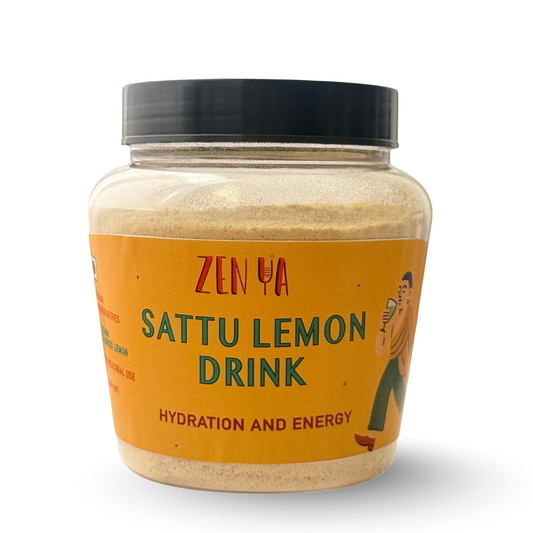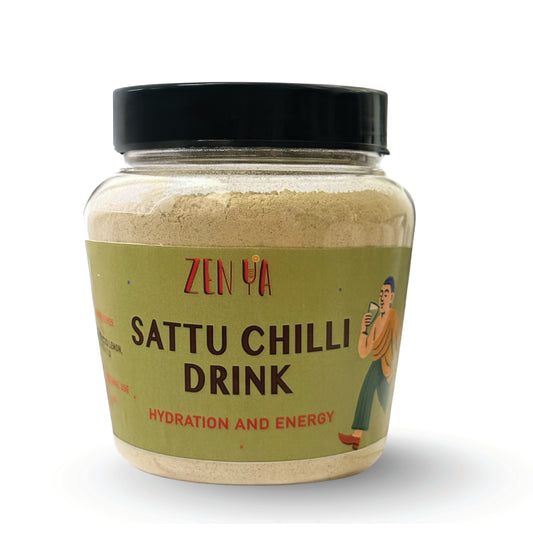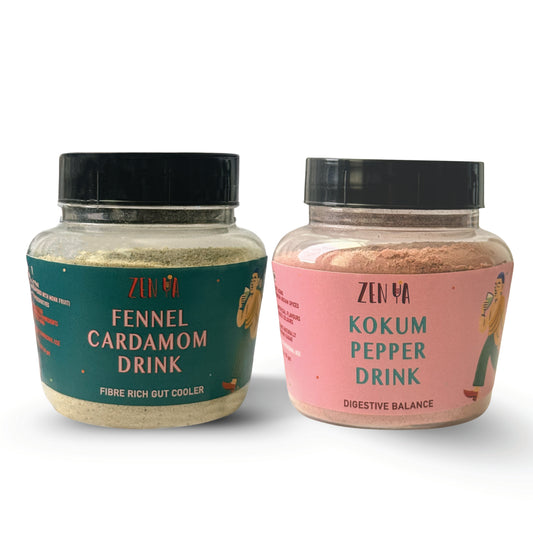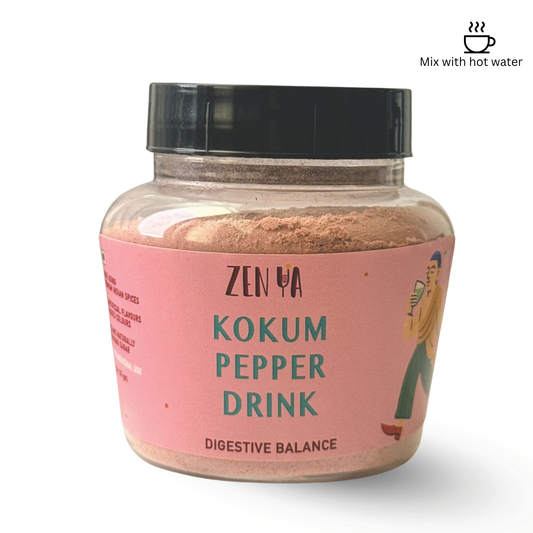
Fire Up Your Metabolism
Share
Ancient Wisdom Meets Modern Science: The Metabolism Story
If you’ve ever envied those mythical beings who can devour a full thali and not gain a gram, while you merely look at a samosa and feel your jeans tighten, this one’s for you. Your metabolism—the engine that keeps your body running—has a lot to say about how efficiently you burn calories, process nutrients, and keep energy levels soaring.
In Indian wellness traditions, metabolism is more than just calories in, calories out. Ayurveda, Siddha, and Unani medicine all revolve around Agni, or digestive fire—quite literally the flame that fuels your body’s ability to transform food into energy. When your Agni is strong, you digest well, absorb nutrients efficiently, and feel energized. When it’s weak or erratic, sluggish digestion, bloating, and weight fluctuations creep in. Keeping this fire burning just right is the key to a well-balanced metabolism.
Fast forward to modern science, and you’ll find metabolism explained through biochemical processes—how your body converts food into energy, how efficiently cells use that energy, and the role of hormones like thyroid and insulin. Turns out, Ayurveda was onto something all along! But what does this mean for you? Let’s break it down.
Metabolism in Your 30s: Changes, Challenges, and Natural Strategies for Busy Professionals
Natural Metabolic Shifts in the Late 20s to 40s
Metabolism tends to be stable through the 20s and 30s, but gradual changes in muscle mass and hormones can subtly reduce daily energy burn. Your basal metabolic rate (BMR) remains relatively stable but starts to shift due to:
Muscle Mass Decline: Around the early 30s, adults start to lose muscle mass at a rate of about 3–8% per decade if no countermeasures are taken. Since muscle is more metabolically active than fat, this loss means fewer calories burned at rest.
Hormonal Changes: Growth hormone, testosterone (in men), and estrogen (in women) start to shift, affecting how the body stores fat and maintains muscle.
Caloric Needs Slightly Decrease: If you eat the same as you did in your 20s without adjusting for these subtle changes, you might notice gradual weight gain over time.
Common Challenges of a Sluggish Metabolism
When metabolism slows, working professionals often experience:
- Unexplained weight gain (especially around the midsection)
- Fatigue and low energy even with adequate sleep
- Sluggish digestion and bloating
- Difficulty losing weight despite diet and exercise efforts
- Hormonal imbalances that affect mood, appetite, and fat storage
Luckily, the right lifestyle adjustments can counteract these effects!
The Science Behind Metabolism (a.k.a. Why You Can’t Just Wish for a Faster One)
Metabolism isn’t just about weight—it’s how your body generates energy for literally everything from breathing to brain function. There are three key components:
- Basal Metabolic Rate (BMR): The energy your body uses at rest to keep your organs working. This is the biggest chunk of your metabolism.
- Thermic Effect of Food (TEF): The energy required to digest and absorb food (yes, eating burns calories!).
- Activity Thermogenesis: This includes both structured exercise and everyday movements like fidgeting, walking, or chasing after your morning coffee.
Age, genetics, hormones, and muscle mass all affect metabolism. But before you blame your slow metabolism entirely on your ancestors, there’s good news—you can optimize it with the right nutrients and lifestyle.
Natural Strategies to Keep Your Metabolism Thriving

Eat a Balanced, Whole-Food Diet
- Prioritise protein (lentils, chickpeas, eggs, nuts) to maintain muscle and boost the thermic effect of food.
- Load up on fibre (vegetables, whole grains, seeds) to support digestion and regulate blood sugar.
- Include healthy fats (walnuts, flaxseeds, omega-3-rich foods) for inflammation control and hormone balance.
- Incorporate spices like black pepper, cumin, cinnamon, ginger, and chilli—natural thermogenic boosters!
Strength Training & Movement
- Muscle burns more calories than fat. Strength training 2-4 times per week preserves and builds muscle, keeping metabolism higher.
- HIIT workouts provide an after-burn effect, increasing calorie burn post-exercise.
- Daily movement (NEAT): Walk more, take the stairs, stretch—small movements add up!
Optimise Sleep & Stress Management
- Sleep regulates appetite and metabolism. Aim for 7–9 hours per night.
- Chronic stress raises cortisol, which slows metabolism. Yoga, meditation, and downtime help keep stress in check.
Hydration & Fasting Wisely
- Drinking water increases metabolic rate slightly and prevents dehydration-induced fatigue.
- Intermittent fasting (12–16-hour windows) may improve insulin sensitivity and fat-burning efficiency when done correctly.
Looking for sustained energy without the crash? This guide breaks it down -> The Ultimate Guide to Real Sustained Energy
The ZenYa Way to Boosting Metabolism: Spice, Spice, Baby!
Since spices play such a crucial role in metabolic health, we created ZenYa Spice—a powerhouse blend of sattu, green chilli, lemon, mint, roasted cumin, and black salt to naturally fuel your metabolism. This all-natural, no-nonsense blend is designed to:
✔ Ignite digestion (no more post-lunch slumps!)
✔ Support gut health (because bloating is so last season)
✔ Deliver a thermogenic boost to enhance calorie burning
Simply mix ZenYa Spice into water for a refreshing, metabolism-friendly drink or sprinkle it over your food for an extra kick. It’s metabolism magic, bottled!
The Final Word: Burn Bright, Not Out
Your metabolism isn’t just about burning calories—it’s about energy, vitality, and feeling your best every day. Whether you lean into Ayurveda’s Agni wisdom, modern nutritional science, or both, the key is consistency. Eat well, move daily, manage stress, and spice things up (literally!).
So, are you ready to fire up your metabolism and keep it roaring? Try ZenYa Spice today and give your body the fuel it deserves!




